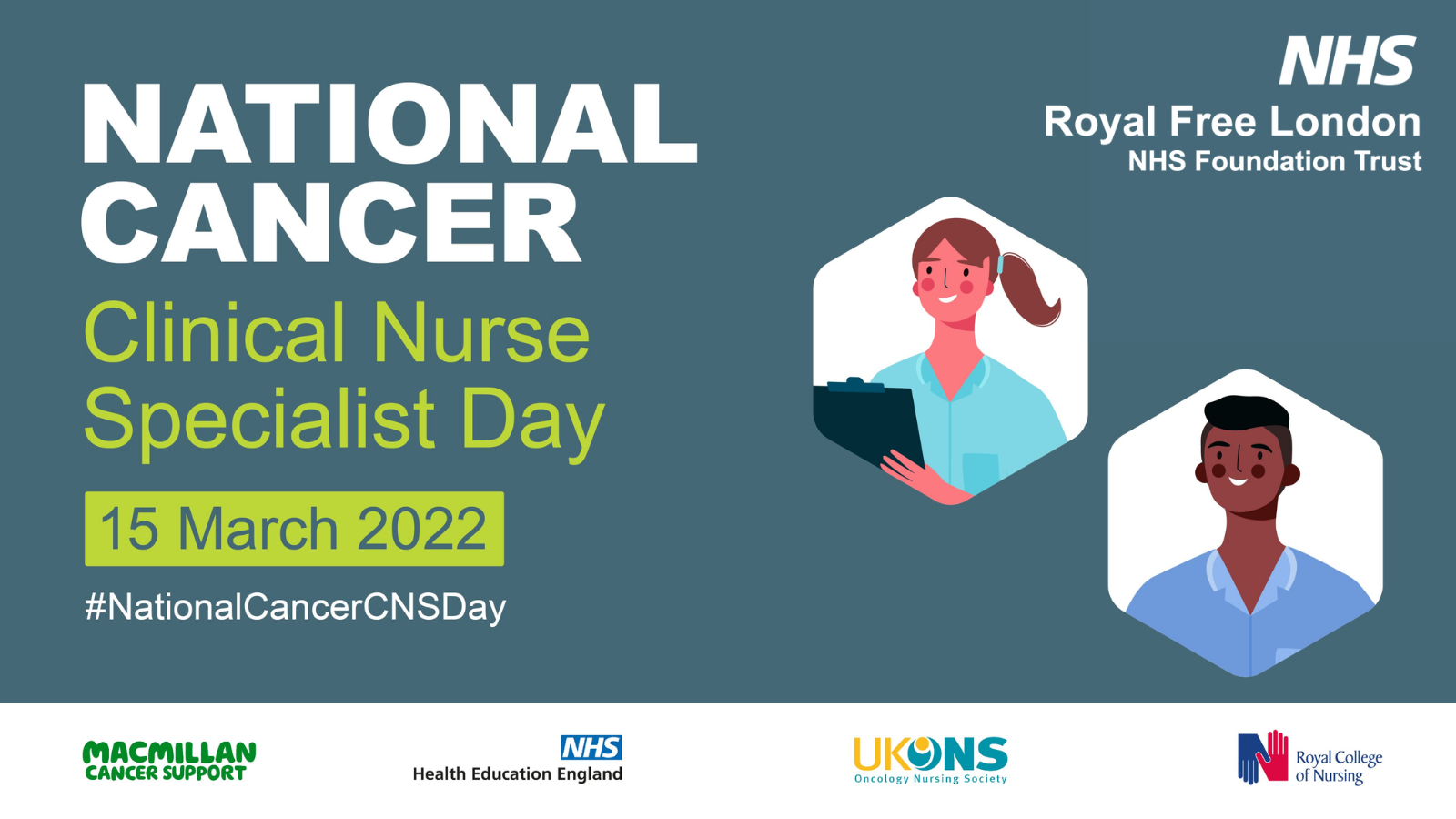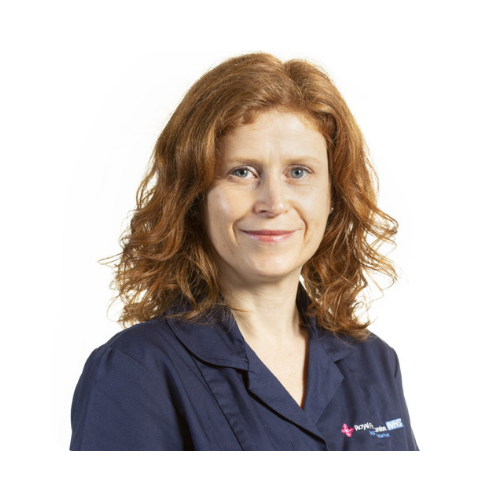
Today, 15 March 2022, is the first ever national cancer CNS (clinical nurse specialist) day. Cancer CNS day is an opportunity to celebrate the role of the specialist cancer nursing workforce in providing the best possible care for patients with a cancer diagnosis.
As the demand for cancer services increases, cancer CNSs work to promote the health and wellbeing of patients. We spoke to just some of the Royal Free London specialist cancer nursing team:
 Kerry Guile, RFL consultant lead cancer nurse, reflects on what cancer CNS day means to her:
Kerry Guile, RFL consultant lead cancer nurse, reflects on what cancer CNS day means to her:
"National cancer clinical nurse specialist day has been established to highlight and celebrate the dedication and hard work of cancer CNS teams.
"We have an amazing team of approximately 70 cancer clinical nurse specialists at the Royal Free London whose roles are complex and varied. The presence and accessibility of a CNS is consistently flagged as the major factor in improving the experience of patients with a cancer diagnosis.
"Our patients are living with a diagnosis of cancer for much longer now and CNS numbers will have to double nationally by 2030 in order to meet the needs of an aging population; many of whom will be living with the effects of cancer or cancer treatment.
"I wanted to take the opportunity to thank this great team on nurses who go above and beyond to deliver the best care that they can to our patients every day.
"All Cancer CNSs can pop along to the Macmillan information centres at either the Royal Free Hospital or Chase Farm Hospital and collect a free goody bag."
 Jenny Campbell, clinical nurse specialist in prostrate cancer at Barnet Hospital, writes about a day in the life of a cancer CNS:
Jenny Campbell, clinical nurse specialist in prostrate cancer at Barnet Hospital, writes about a day in the life of a cancer CNS:
"I am a clinical nurse specialist in prostate cancer at Barnet Hospital. I work closely with the urology and oncology teams to support and advise patients who have confirmed or suspected prostate cancer. Once the patient’s diagnosis is confirmed, my main job is to co-ordinate the patient’s care to ensure they receive the best possible treatment for their diagnosis, and to ensure they feel well supported
"When I’m not running a clinic, I do my admin and really whatever pops up, as it only takes a phone call for the day to change. I have two face-to-face clinics per week, one telephone clinic, and a day where I attend the multidisciplinary team meeting to hear all the new cases of prostate cancer. In this meeting, each patient’s case is heard and we hear an expert opinion from the medical consultants, surgeons, and radiologists as to which treatment they feel would be best for their patient. From there it is my job to organise that the patient gets all the necessary information they need about which treatment option they choose to puruse.
"I am very aware that my role is a privileged one - I see patients that are dealing with one of the biggest challenges they will ever face in their life, and I feel fortunate that they have taught me a lot about how to face such huge challenges."
 David Cullen, RFL Macmillan lead for personalised cancer care, celebrates cancer CNS day and reflects on patient care:
David Cullen, RFL Macmillan lead for personalised cancer care, celebrates cancer CNS day and reflects on patient care:
"I started my first job at the Royal Free Hospital in 1999 working on the urology ward and this was the beginning of developing my passion for urology nursing. I have held many different roles as a CNS during this time: diagnostic urology, prostate cancer and as lead nurse for the specialist kidney cancer centre. The opportunities to develop expertise and specialist practice are vast and the trust is very supportive in the development of the CNS role.
"I am currently the Macmillan lead for personalised cancer care. This is a two-year project working with the cancer teams to help the transition to delivering all the interventions of personalised cancer care to our patients as set out by the NHS Long Term Plan.
"It's been very exciting over the past six months to see the great progress the CNS team have made to ensure patients are offered an electronic holistic needs assessment and care plan. We have reintroduced health and wellbeing information events for patients virtually.
"CNSs across the trust manage complex and changing information to support the needs of patients and carers. We manage treatment side effects and/or symptom control to help prevent unplanned admissions. We also provide nurse-led services that free up consultant resources. CNSs are key to ensure patients’ experiences of care have been enhanced and personalised."
 Translate
Translate
